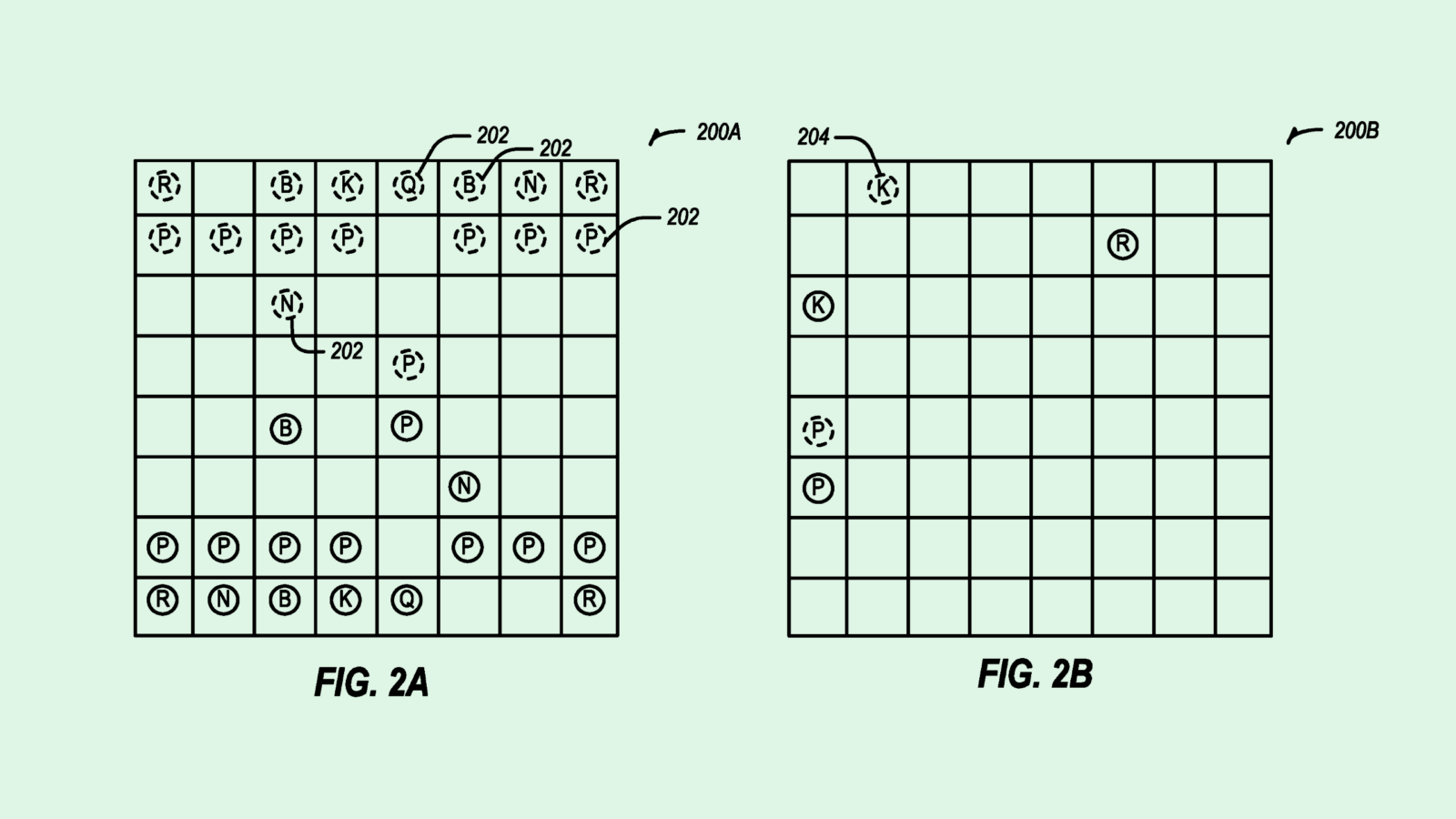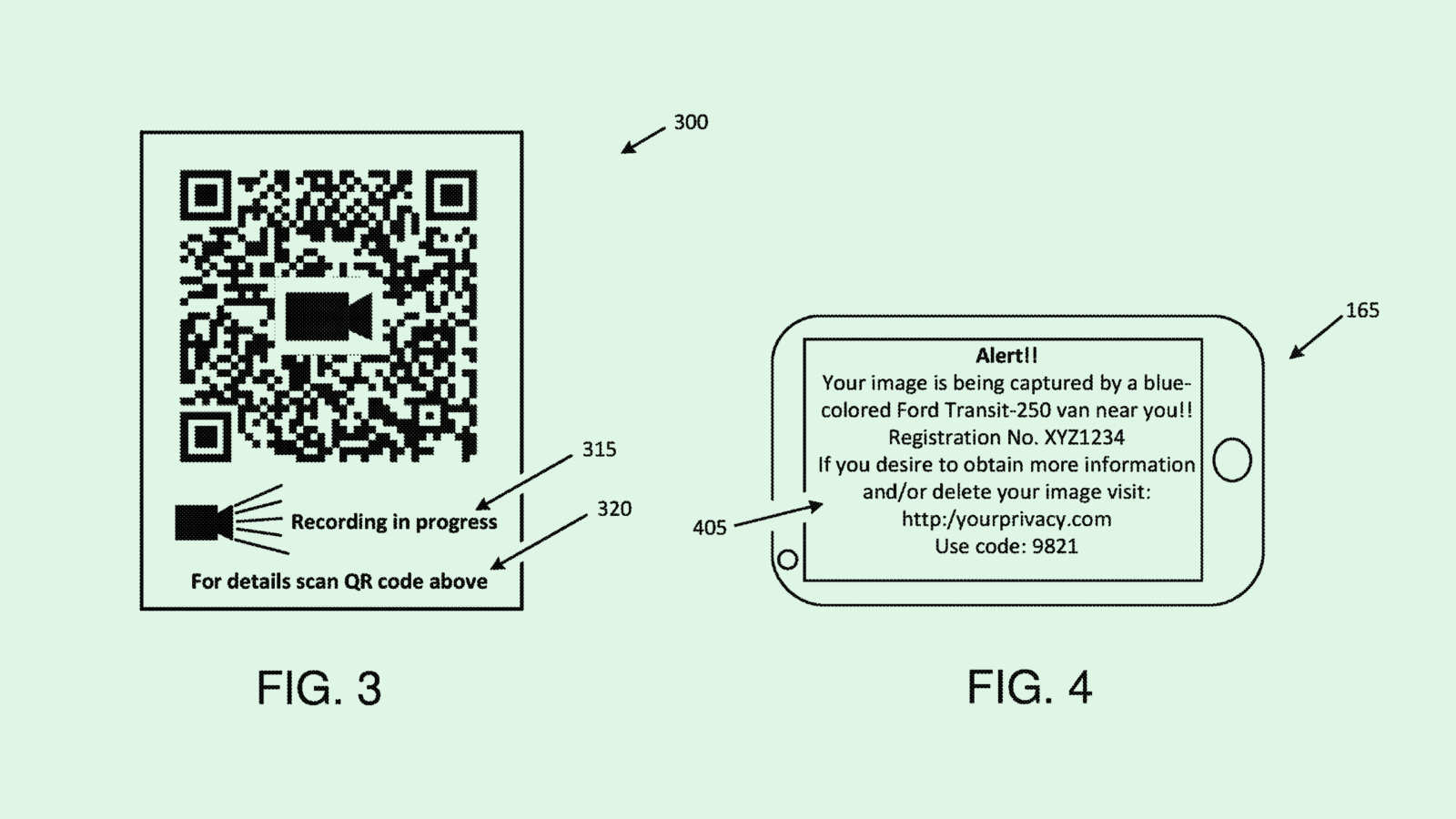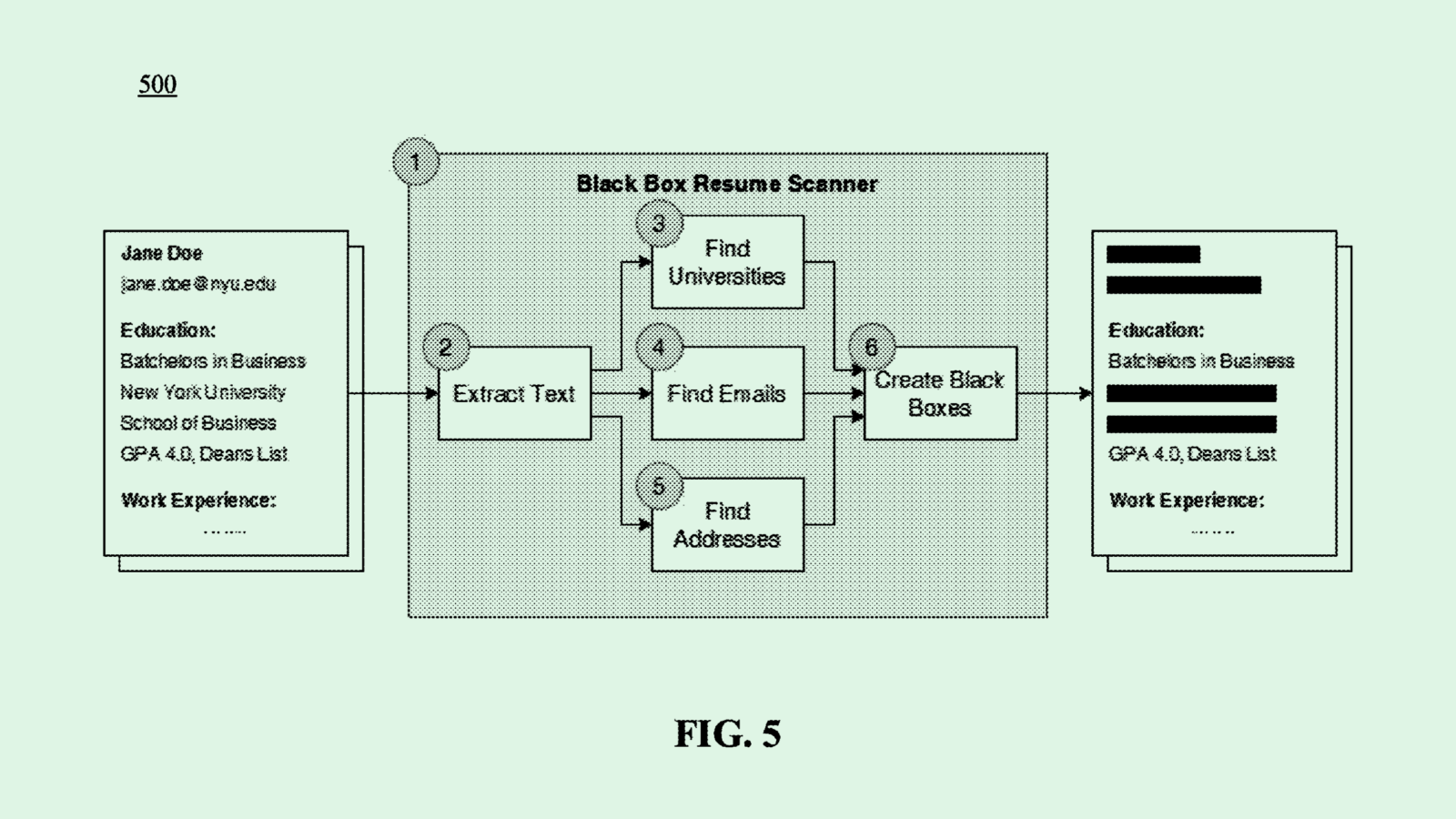Happy Monday and welcome to Patent Drop!
Today, Apple adds another AI patent application to its portfolio as the company prepares to jump into the burgeoning market. Plus: Ford wants to limit privacy liabilities of connected cars, and JPMorgan Chase is tackling human biases with two recent patents.
Let’s get into it.
Apple’s Tailor-Made AI
Apple wants its AI to fit into every part of your iPhone experience.
The company is seeking to patent an AI controller that “procedurally tailors itself to an application.” Apple’s patent details a system for an AI model that can adapt to whatever context is needed.
While AI can be a helpful tool in software “to make decisions during normal operation … software applications are often limited to use of a prearranged AI algorithm for a given situation,” Apple said in the filing.
First, Apple’s system monitors the “state information” related to a given application, such as user activity or functionality, to understand the context for use. One example Apple gives is monitoring the progress of a user’s virtual chess game in its gaming app by tracking what pieces are on the board and who is winning.
The system would then pick one AI algorithm out of a pool – stored locally on the device – to help optimize the user’s experience, transmitting it back to the app and finally implementing it. In the context of a virtual chess game, it may pick an algorithm based on a user’s performance to decide moves or strategy.
While the primary example in this filing uses gaming, Apple notes that the system isn’t limited to just that use case, potentially allowing the tech to be implemented across several apps.

As the AI race heats up, Apple probably wants to extend far beyond virtual chess. The company is expected to unveil a host of new AI features in its upcoming iOS 18 update at its developers conference in June, including things like AI-enhanced search and text message summarization with Siri. The company also reportedly aims to make its models run locally on Apple devices.
Apple has also poached hundreds of AI experts from Google to create a European lab in Zurich, according to an investigation from The Financial Times. CEO Tim Cook said in the company’s earnings last week that Apple is making significant investments in AI, and has “advantages that will differentiate us in this new era” in areas like hardware, software, chips and privacy.
“Generative AI could fuel the next big Apple iPhone refresh cycle, similar to how the first 5G iPhone did in 2021,” said Ido Caspi, research analyst at Global X ETFs.
While Apple has been quieter with AI than its Big Tech counterparts, it’s not necessarily lagging behind them, Caspi noted. The company already has dominance in the smartphone market, giving it major potential in a relatively untapped market. Though Apple is mulling integration partnerships with OpenAI and Google, it’s likely to develop its own solutions down the line, he noted.
“Smartphones stand to gain significantly from generative AI … these factors position Apple well to lead in Edge AI — a potential that the market has yet to fully recognize,” said Caspi.
Plus, Apple has a far better reputation for privacy than other tech giants, and therefore has largely gained the trust of consumers. “This makes it likely that users will prefer Apple’s potential integrated AI solutions over third-party applications, particularly those that require subscriptions,” Caspi noted.
Ford Navigates Privacy
Ford wants to keep its cars from over-collecting data.
The automaker is seeking to patent a system for communicating privacy rights “pertaining to data captured by a vehicle.” This method essentially aims to make sure that Ford doesn’t have access to people’s likeness without their consent.
Vehicles often capture image data at a near-constant rate. While this may be helpful for things like automatic braking, parking assistance or autonomous driving, it leads to a glut of image data collection, often with unsuspecting passersby in frame. “Capturing an image of an individual without his/her consent (may) be undesirable in some scenarios,” Ford said in the filing.
Essentially, if one of Ford’s vehicles captures an image or video of a person who happened to be in the vicinity, it will recognize it and generate a machine-readable “identifier,” such as a QR code or barcode, associated with that image data.
The system then creates a notification that includes that identifier, which populates either on the vehicle’s interior and exterior display screens, or directly texts the individual if the vehicle has their number. The notification would link the individual to a description of the vehicle that captured their image data and instructions to delete the stored image data if desired.
For example, if you are walking by a Ford vehicle with cameras that are on, a QR code may pop up on an exterior screen, linking to information on privacy rights. From inside the car, the QR code may display on the infotainment center, or the vehicle may directly text the individual.

Vehicles are getting a whole lot smarter. While all automakers are looking at ways to personalize your ride, Ford has a growing stable of patents to create a more high-tech experience, including applications for things like biometric car keys and driver data usage for tracking test drives.
But as cars become increasingly packed with tech perks, they’re also collecting a lot of data – both about drivers and anyone that rides inside or comes near them. This is especially true in the age of autonomous vehicles, said Bob Bilbruck, CEO of consulting firm Captjur.
Vehicles with any kind of driver assistance or autonomous capability are generally packed with AI-based sensors to help them make proper decisions. US lawmakers raised concerns about this in November as it relates to Chinese self-driving car developers like Baidu, DiDi and Pony.AI, saying that data collection practices by these companies testing vehicles on US roads is cause for concern.
However, several US automakers are working on their own version of this tech. “I don’t think people realize how much they’re on camera every day,” Bilbruck said. “(This patent) is basically the equivalent of a disclaimer that you’re on camera.”
This data can be helpful in some instances, such as providing additional footage in criminal investigations or deciphering who may be at fault in a car accident, Bilbruck noted. However, with this filing, Ford may be trying to shield itself from liability for unintentionally collecting personally identifiable information, he noted, getting ahead of potential lawsuits or regulations.
“They might be trying to cover themselves when, down the road, consumers might say, ‘Hey, I didn’t consent to being filmed by every Ford vehicle out there,’” Bilbruck said.
JPMorgan Chase’s Bias Solution
Two recent patents from JPMorgan Chase may signal the company’s desire to take on bias with AI.
To start, the financial institution is seeking to patent a system for the “automated masking of targeted information in resumes.” This tech essentially blocks out certain information on a resume that may lead to a hiring team or reviewer acting on implicit biases.
Resumes often include “personal information about a particular candidate that may be used by a reviewer to unfairly bias the reviewer’s opinion for or against the particular candidate—whether consciously or subconsciously,” JPMorgan said.
Using AI, JPMorgan’s system would generate a black box that redacts certain information on a resume before sending it to the reviewer. For example, some of the information that may be redacted is a person’s name, university, email address, residential address and age, only leaving information about skills and past experience for the reviewer to focus on.
JPMorgan may also be looking at ways to negate bias internally, too: The company wants to patent tech for “identifying and removing bias from communications.” This essentially aims to monitor communications, such as emails, texts, documents or audio transcriptions, to find and point out words or phrases that it deems biased.
Using a machine learning model, this tech will analyze a passage of text to pick up on patterns of bias, and suggest how to change them. This could help eliminate unconscious bias by giving text another set of proverbial eyes. “Unconscious biases are usually exhibited towards factors like class, gender, race, ethnicity, and sexual orientation,” JPMorgan said in the filing. “These biases are more pervasive and difficult to control than deliberate discrimination.”

JPMorgan Chase is all in on AI. The company has sought patents for AI-based financial planners, machine learning-based due diligence and no-code model building technology. The company has even sought to automate HR with a patent application for a system to use machine learning for recruiting.
While these patents aim to use AI-powered tech to limit humans’ tendencies to have implicit biases, AI itself often comes with its own biases. Because AI models are only as good as the data that they’re trained on, they can often be skewed by biases in the data.
Several tech firms have attempted to solve this issue in any context where it may show up, whether it be image tools, AI lending, or the training data itself. However, when left unsolved, these biases can impact the performance and output of AI models.
For example, a recent investigation from Bloomberg found that OpenAI’s ChatGPT 3.5 displayed preferences for certain races in questions about hiring. Job seekers are noticing biases as well, with 49% surveyed by the American Staffing Association believing that AI recruiting tools are more biased than their human counterparts.
If JPMorgan implements these tools, the company may have to be careful about how it trains its models responsible for monitoring hiring and communications, or they could unintentionally create more bias than they’re stopping.
Extra Drops
- Ford wants to keep you straight and steady. The automotive company wants to patent methods to “monitor and prevent trailer sway” of a vehicle.
- Google wants to know if you lost interest. The company wants to patent a system for algorithmic determination of “story readers discontinuation of reading.”
- Spotify wants to know what you don’t want to hear. The company is seeking to patent a system for detection of “mismatched content.”
What Else is New?
- Jack Dorsey left the board of social media app Bluesky. Dorsey was the apps most prominent backer.
- AI developer Hugging Face launched LeRobot, an open source robotics code library.
- YouTube is rolling out an AI-powered feature called Jump Ahead, allowing users to skip to the best parts of a video based on user data.
Patent Drop is written by Nat Rubio-Licht. You can find them on Twitter @natrubio__.
Patent Drop is a publication of The Daily Upside. For any questions or comments, feel free to contact us at patentdrop@thedailyupside.com.
